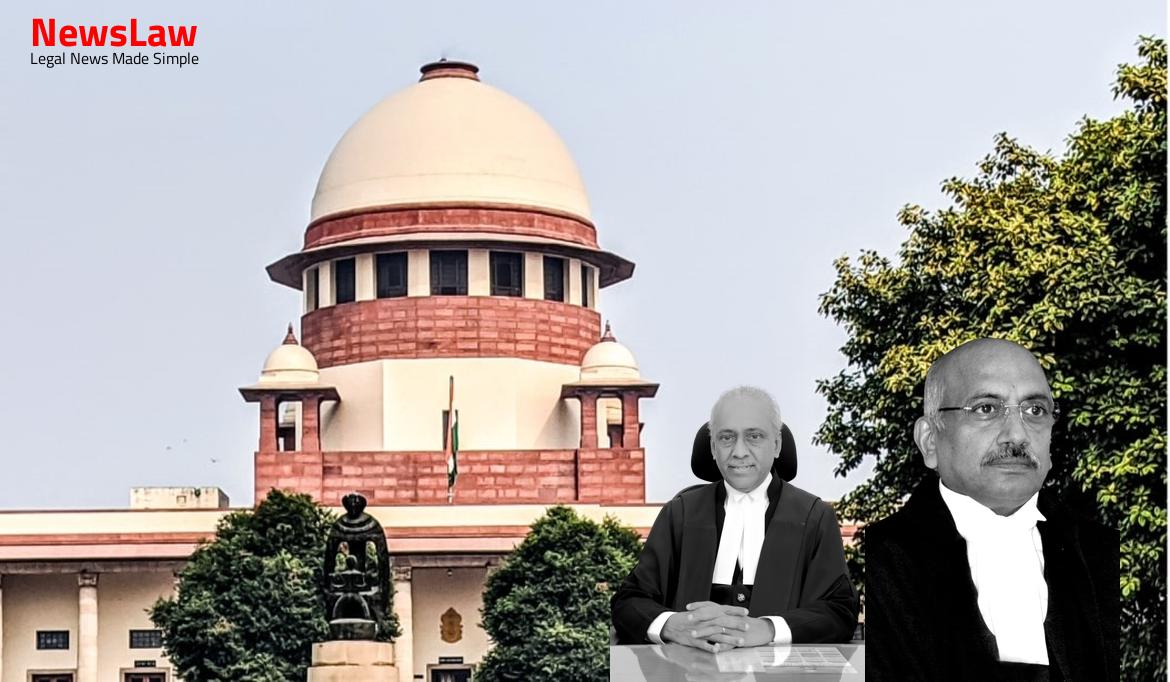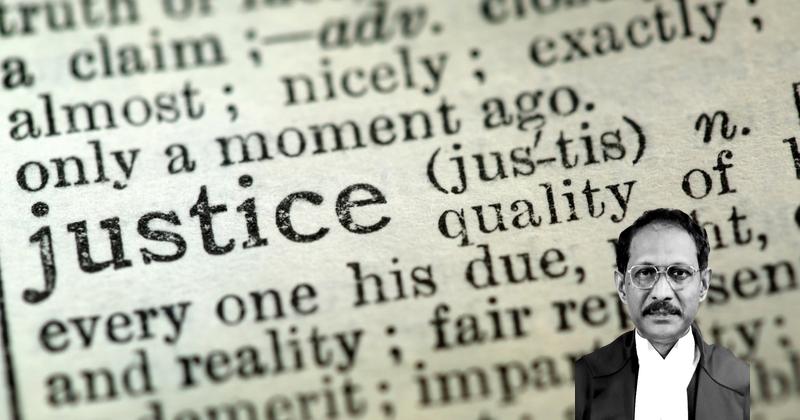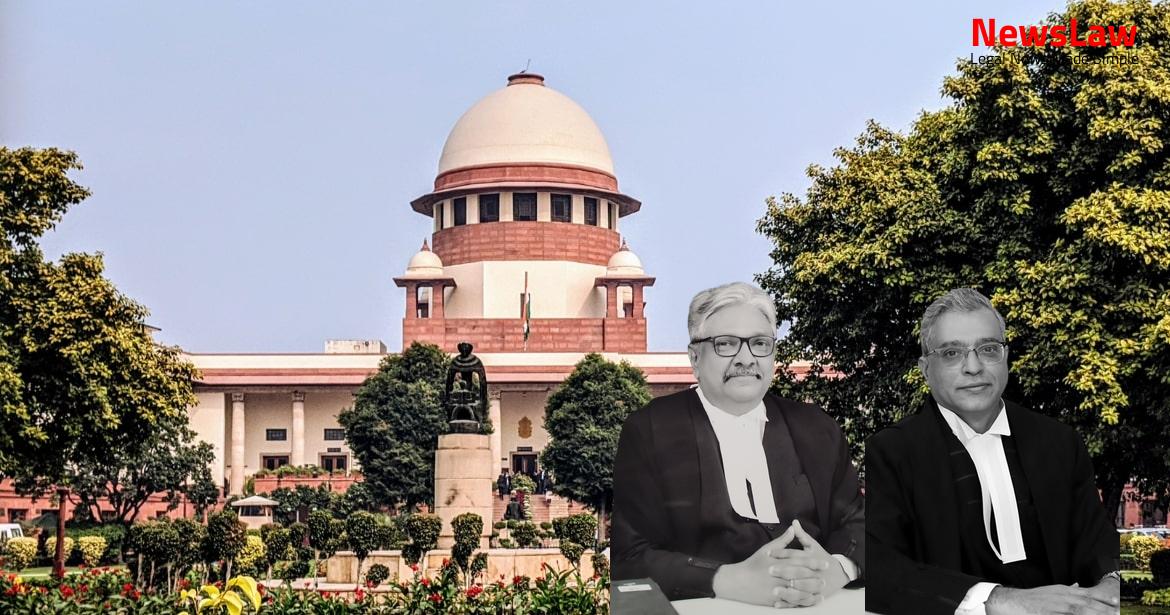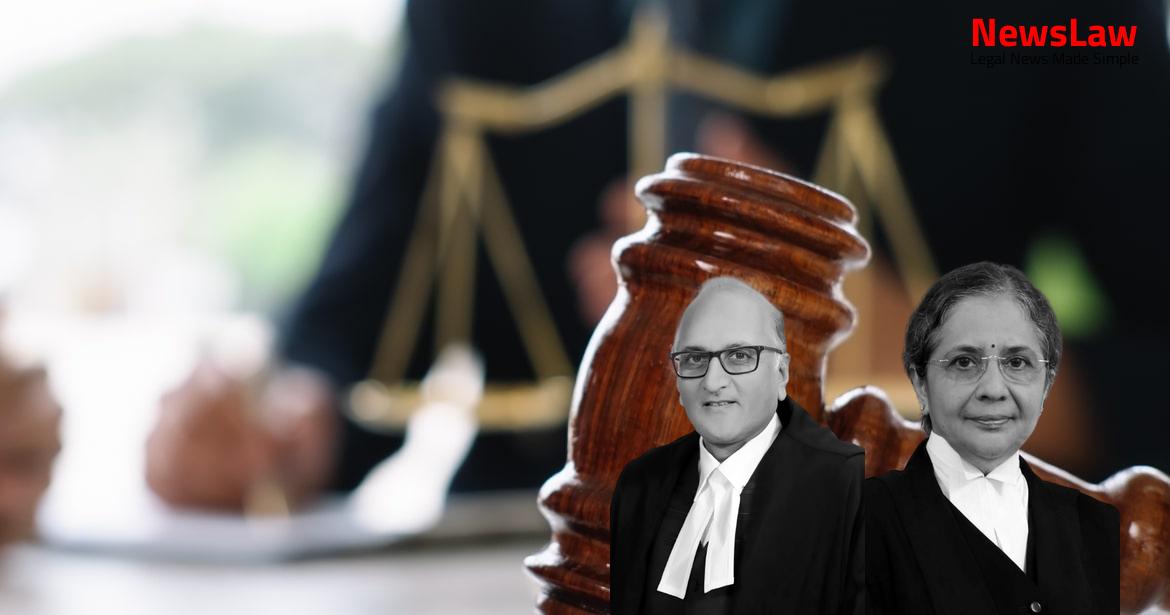The case delves into critical legal analysis in disciplinary proceedings, focusing on burden of proof, the concept of res ipsa loquitur, and the role of judicial review. The court’s examination of evidence, adherence to natural justice principles, and application of different standards of proof in criminal versus departmental inquiries provide valuable insights into the legal framework governing disciplinary actions in public service. Stay tuned to understand the intricate legal nuances revealed in the court’s analysis.
Facts
- Writ Petition (C) No 6354 of 2012 was disposed of on 21.11.2012, giving liberty to the appellant to charge sheet the writ petitioner.
- The proceedings of the chargesheet were not concluded.
- Writ petitioner, a General Duty Constable in the CRPF, was served with another chargesheet on 27.8.2012.
- Witnesses testified to the writ petitioner firing inside the camp with his personal weapon.
- Key witnesses include PW-3, PW-4, PW-5, and Constable D.K. Mishra (PW-6) who provided detailed accounts of the incident.
- The appellate and revisional authority affirmed the order regarding the writ petitioner’s actions.
- The writ petitioner was dismissed from service on 21.12.1996 due to criminal conviction in a trial resulting from the incident on 11.4.1993.
- Detailed incidents and witness accounts leading to the charges against the writ petitioner were presented during the proceedings.
- PW-6 Constable D.K. Mishra immobilized the writ petitioner while he was loading another magazine in the self-loading rifle.
- High Court acquitted the writ petitioner based on benefit of doubt due to discrepancy in the number of fired cartridges and recovered empties.
- High Court exceeded jurisdiction by reviewing disciplinary proceedings conducted following principles of natural justice.
- No allegation of firearm use leading to death and injuries in charge sheet issued on 27.6.1993.
- Writ petitioner was convicted in trial court but later acquitted and reinstated due to benefit of doubt.
- High Court doubted prosecution version due to lack of evidence collection by Investigating Agency.
- High Court reinstated respondent and granted arrears of pay from dismissal till joining duty in an appeal.
- The Division Bench of the High Court of Delhi set aside dismissal order and directed reinstatement of the respondent.
Also Read: Interpretation of Will and Hindu Succession Act: Legal Analysis
Arguments
- In the disciplinary proceedings, the focus should be on whether the respondent’s conduct justifies removal from service or a lesser punishment.
- The case of Depot Manager, A.P. State Road Transport Corporation v. Mohd. Yousuf Miya & Ors. highlights this principle.
- During the writ petition in the High Court, the appellants were required to provide registers related to the entrustment of S.L.R. to the writ petitioner.
Also Read: Analysis of High Court’s Decision on Registration Certificate and Onus of Proof in Sales Tax Case
Analysis
- Burden of proof in departmental proceedings is based on probabilities of misconduct, not beyond reasonable doubt.
- A false case has been made against the respondent.
- Evidence from departmental witnesses establishes the use of the official weapon by the respondent.
- The burden of proving the fatal accident was not due to respondent’s negligence lies on the respondent.
- Enquiry officer’s competence and adherence to rules of natural justice are key factors in examining the validity of the inquiry.
- Initiation of the inquiry after the writ petitioner’s acquittal from criminal trial raises questions.
- Allegations of terrorist attack and use of personal weapon are not supported by departmental witnesses.
- The dismissal decision by the disciplinary authority was deemed just and proper based on the evidence presented.
- The doctrine of res ipsa loquitur is applicable to the case.
- Degree of proof for conviction is different from proof necessary to record delinquency in departmental inquiries.
- Burden of proof in criminal law is on the prosecution to prove guilt ‘beyond reasonable doubt’.
- In departmental inquiries, penalties can be imposed based on ‘preponderance of probability’ rather than ‘beyond reasonable doubt’.
- Judicial review ensures fair treatment, not correctness of the authority’s conclusion.
- Judicial review is a review of the decision-making process, not an appeal against the decision itself.
- Criminal prosecution is for violation of a duty to society; departmental inquiry is for maintaining discipline in public service.
- In domestic enquiries, rules of evidence may not be as strict as in regular court proceedings.
- Hearsay evidence is permissible in domestic enquiries if it is credible and relevant.
- Court has laid down parameters for exercising judicial review in various cases.
- Labor Commissioner exceeded jurisdiction by reappreciating evidence in a case, rather than assessing it as presented.
- The issue was not lack of legal evidence in the case.
- The High Court’s order is not sustainable due to lack of evidence
- No infringement of rules or regulations or violation of natural justice found
- Appellants provided the best available evidence after a long period of time
Also Read: Legal Analysis on Surrender of Tenancy Rights
Decision
- The order of punishment of dismissal passed on 21.12.1996 has been set aside.
- The order of punishment affirmed in appeal and revision stands restored.
- As a result, the appeal has been allowed.
Case Title: UNION OF INDIA Vs. DALBIR SINGH (2021 INSC 520)
Case Number: C.A. No.-005848-005848 / 2021



